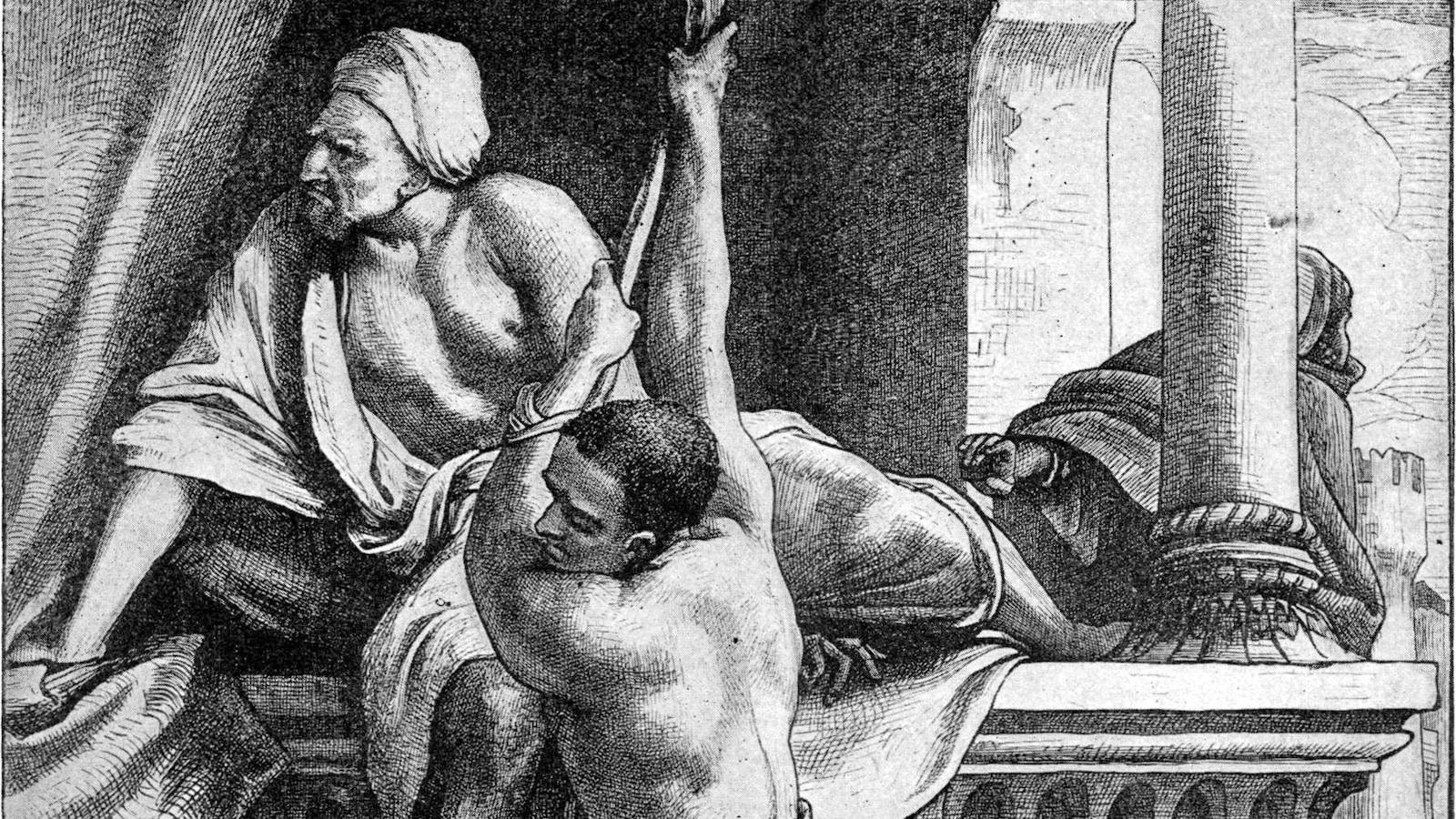Commentary on Parashat Sh'lach, Numbers 13:1-15:41
The haftarah selection is from the Book of Joshua 2:1-24.
In Parashat Sh’lach Moses sends 12 spies into the Land of Israel to gather information that will make the Israelites more enthusiastic about entering the Promised Land. The spies are also charged with scouting out the land for military purposes.
In the haftarah for Sh’lach, Joshua is continuing the mission that Moses began: planning a military crusade to conquer the land. Joshua sends two spies into the city of Jericho to survey the region and assess the military options. The spies lodge with a prostitute named Rahab, who lives along the wall built around the city.
Somehow, the king of Jericho is alerted that there are Israelite spies in his city and orders Rahab to produce the men she is hiding. Luckily, Rahab is able to hide the men on her roof while her home is being searched. She successfully convinces the king that the spies have already left and can be caught if the king’s men give chase.

Help us keep Jewish knowledge accessible to millions of people around the world.
Your donation to My Jewish Learning fuels endless journeys of Jewish discovery. With your help, My Jewish Learning can continue to provide nonstop opportunities for learning, connection and growth.
Once the king’s men are gone, Rahab goes up to the roof to speak with the spies. She tells them that she heard about the miracles God performed for the People of Israel, and she believes in the Israelite God. This is why she protected the Israelite men, and turned against her own king. Then she demands that she and her family be spared when the Israelites attack Jericho, and requests some kind of sign that to prove that her family will not be harmed.
The men promise to protect Rahab and her family and climb out of her window to safety. As they are leaving, they tell Rahab to leave a crimson cord hanging outside her window. The cord will mark her home as a safe house, and everyone inside it will be spared from harm, but anyone who ventures out of her house will be taking his life into his own hands.
When the spies return to the Israelite camp and report to Joshua they say, “The Lord has delivered the whole land into our power; in fact, all the inhabitants of the land are quaking before us” (2:24).
Spies and Cords
There are obvious parallels between this week’s parashah and haftarah, since both are stories of spies who are sent out to survey land that the Israelites have been promised by God. Much of the language used in the book of Joshua is very similar to the language in Numbers. However, while Moses sends 12 spies, and 10 of them come back quaking in fear of the giants they saw in the land, Joshua sent only two spies, who returned with a message of confidence.
Additionally, the structure of the portion and the haftarah are very similar. The Torah reading begins with the spies being sent into Israel, and ends with the of tzitzit, or fringed garments. God instructs the people to put fringes on the corners of all of their four cornered garments. The fringes are meant to be a deterrent for sin: “Look at it and recall the commandments of the Lord and observe them, so that you do not follow your hear and eyes in your lustful urge.” (Numbers 15:39)
The haftarah also begins with spies being sent into Israel, and also ends with a symbolic string: the crimson cord that Rahab must hang out of her window in order to be spared when the Israelites attack. Like tzitzit, this cord will remind invading Israelites to curb their vengeful or lusty desires.



